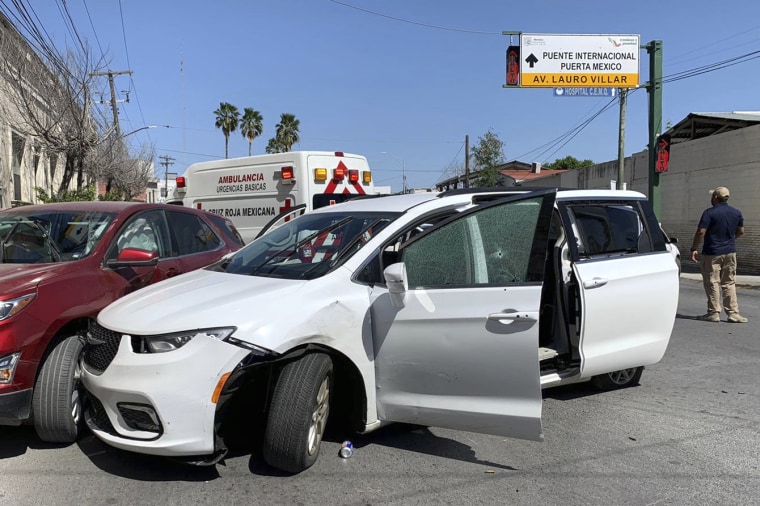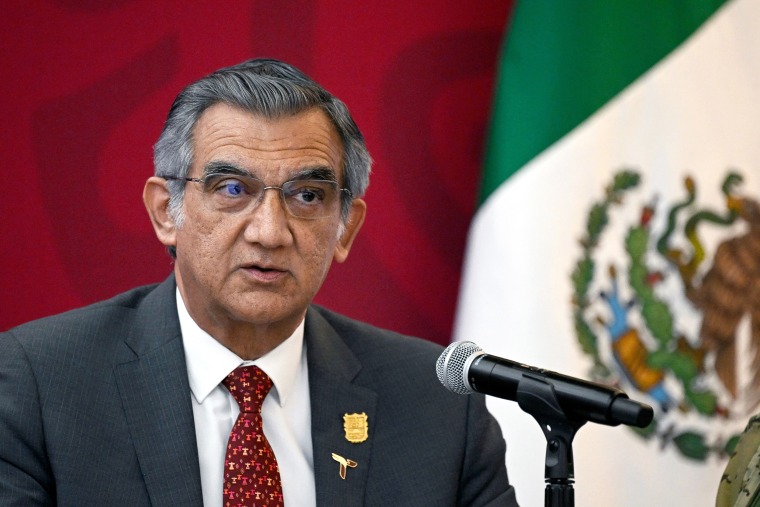[ad_1]
The daylight abduction of a group of U.S. citizens in Mexico would have been nearly impossible to prevent, and it highlights the perils of crossing the southern border into territories run by drug cartels, retired FBI agents said Tuesday.
Two of the U.S. citizens were killed, and the two others have returned to the U.S.
“The big takeout is the border is wide open, and drug cartels are operating and controlling the border,” said former FBI special agent Peter Yachmetz, who was a certified hostage negotiator. “Do not go through any of these border crossings. It is a known ‘Do Not Travel zone.’”
The U.S. group was most likely attacked and abducted by cartel gunmen in a case of mistaken identity, a law enforcement official has said, and the Mexican authorities’ hypothesis is “that it was confusion, not a direct attack,” the state prosecutor said.

The four U.S. citizens drove a minivan with North Carolina plates into Matamoros, Tamaulipas, on Friday. The group was said to have been in the country for a cosmetic procedure.
The city is just south of Brownsville, Texas.
The group was caught in gunfire after having crossed the border, and video showed a gunman walking one of the Americans into the bed of a white pickup, then dragging and loading up the three others. Terrified civilian motorists sat silently in their vehicles, hoping not to draw attention.
Shaeed Woodard, 33, and Zindell Brown, in his mid-20s, were killed, while LaTavia Washington McGee and Robert Williams, who was shot in the leg, survived the attack.
The U.S. ambassador to Mexico, Ken Salazar, said Monday in a statement that an “innocent Mexican citizen was tragically killed.”
‘Do Not Travel’ warning
Violence is not rare in Tamaulipas state, where the U.S. State Department has issued a “Do Not Travel” warning, citing, organized crime activity, gunbattles, armed robbery and kidnappings.
And while kidnappings are a threat in the area, this one unfolded in a far different manner, experts say.
“It looks like it was potentially a random act of violence. And if that is the case, then that is very difficult to prevent,” said Toni Chrabot, a retired FBI special agent who was a certified hostage negotiator.
“It appears the family of one of the victims may have reported the kidnapping to the FBI, but it is unclear why the group was targeted. This does not appear to have been a kidnap for ransom, and there are a lot of unanswered questions.”
Unlike professional kidnappings
Don Aviv, the president of Interfor International, an intelligence and security consulting firm based in New York that works to free people being held for ransom, said that typically, abductions and negotiations are not discussed publicly.
The parties have a mutual interest in trying to avoid bad publicity, he said.
“If it gets to the point where the FBI needs to get involved, you’ve already lost. The game is lost for the safe return,” Aviv said. “When the FBI gets involved, it means that someone has reported it to the FBI — it’s gone messy.”
More coverage of deadly Mexico abduction
Aviv said that often, with “professional kidnappers, the guys that know this is a financial transaction, everything goes smoothly.”
“If you’re dealing with hotheads, and it may not have anything to do with money … that’s when things tend not to go right,” he said. “Because it’s not about the money — it’s about retribution or narcotrafficking of some kind.”

The Americans were found Tuesday morning in a wooden house close to an area called La Lagunona in Matamoros, Tamaulipas Gov. Américo Villarreal said.
He said the abductors had taken the U.S. citizens to various places, including a clinic, “to create confusion and to interrupt the rescue work.”
A 24-year-old man from Tamaulipas “was found guarding the victims” and arrested, Villarreal said, and officials continue to search for others involved in the deadly abduction.
Ken Dilanian and The Associated Press contributed.
[ad_2]
Source link
